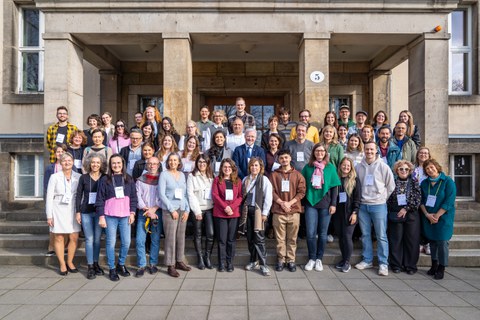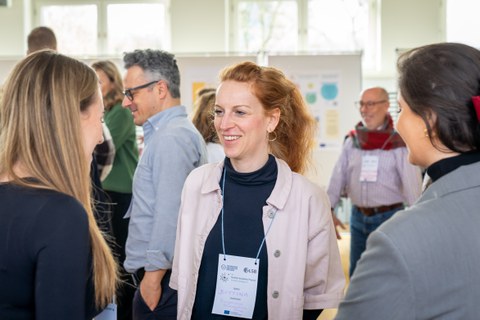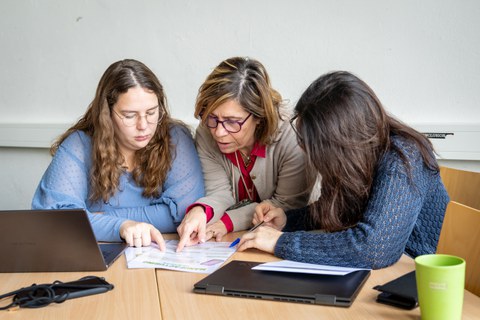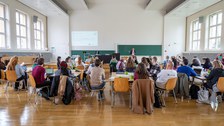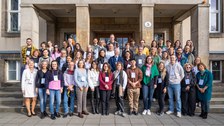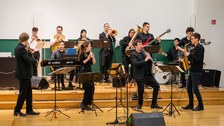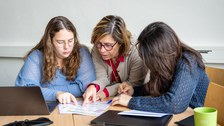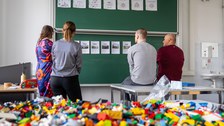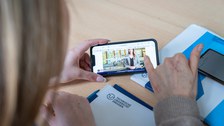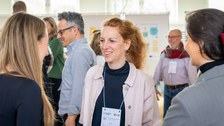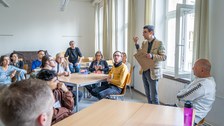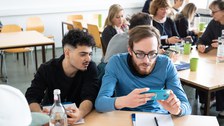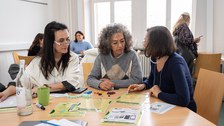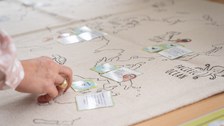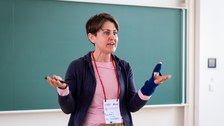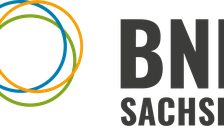Mar 28, 2024
Towards a sustainable future - an active learning event
From March 21 to 24, the ZLSB hosted a congress on Education for Sustainable Development (ESD) for the second time. In total, over 50 international guests, student teachers, school teachers and teacher trainers from 12 European countries came to Dresden to explore various aspects of this important topic in a wide range of interactive workshops, simulation games and discussions. The three-day face-to-face event was part of a hybrid course that also included three webinars and self-study activities. The focus was on digitality, entrepreneurship, decolonization and serious games.
Pedagogical approaches that participants were able to apply and reflect on included collaborative learning in virtual environments, entrepreneurial simulations, transformative learning through games and museum education activities in extracurricular learning venues. "The international composition of the interdisciplinary group provided an inspiring atmosphere," says Dr. Rachel Bowden, ESD officer at the ZLSB. Together with Maria Richter-Babekoff, she also coordinates the Teacher Academy Project - Teaching Sustainability (TAP-TS) at the ZLSB. In collaboration with 10 other consortium partners, formats for encounters and intensive cooperation are being developed here, including in the form of active learning events, which are intended to anchor the idea of sustainability in the education system.
Various aspects of sustainability and education were examined in working groups. The working group on entrepreneurship dealt with the positive mindset that goes hand in hand with the entrepreneurial spirit. This enables young people to overcome disadvantages, mistakes and problems in life. They learn to overcome challenges, be decisive and take responsibility for their behavior and activities.
While the Digitalisation working group looked at the fundamental environmental, social and economic changes brought about by advancing digitalisation, the Decolonisation working group explored the link between climate change and exploitative and capitalist/colonial ideologies from Europe. In the Games & Simulations working group, participants learnt about the potential of games as an educational tool for disaster prevention, resilience and skills development.
In the form of museum visits, the participants also had the opportunity to familiarise themselves with the approach of out-of-school learning to strengthen students' sustainability skills. The event concluded with the INTERACT course, which aims to raise awareness of culture, the influence of cultural imprinting on behaviour and to equip teachers with the intercultural competence that is essential for dealing with diversity in the classroom and on the schoolyard, with student families and among the school staff today.
According to the evaluation team, the format was a success: "Participants felt the event was well balanced between theoretical & practical parts and the workshops were consistent without being too similar". It was also praised that many of the activities were designed to allow participants to network and get to know each other. In their feedback, the guests particularly emphasised the high practical relevance of the activities and their added value for lively, motivating lessons. “We hope to see the approaches of Education for a Sustainable Future reflected in European teaching practice," concludes Rachel Bowden.
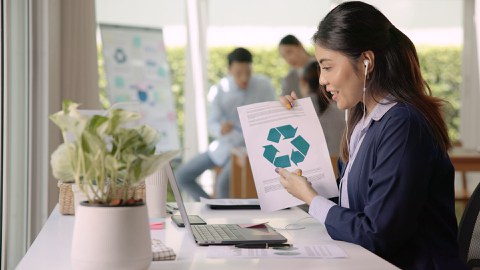
© Chay Tee/Adobe Stock
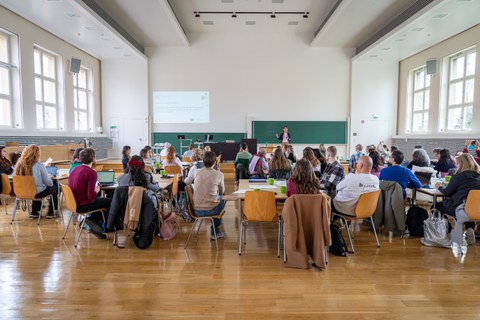
© Steffen Schreiber
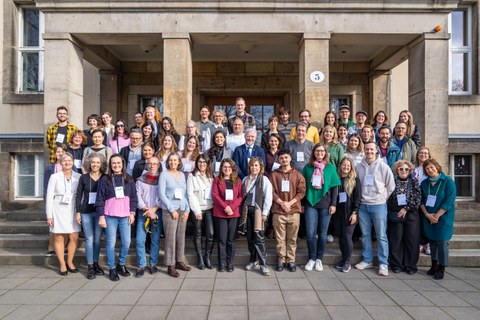
© Steffen Schreiber
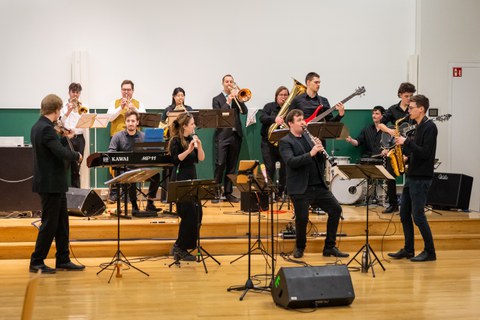
© Steffen Schreiber
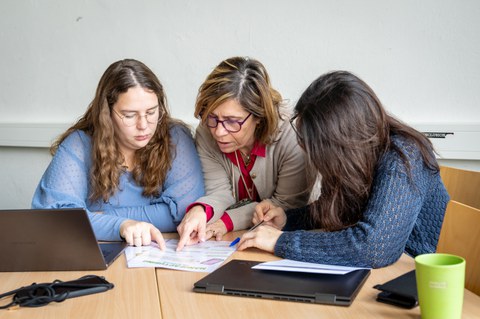
© Steffen Schreiber
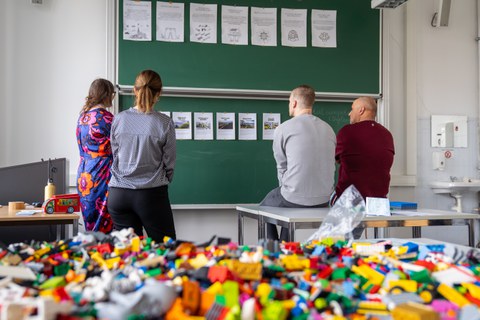
© Steffen Schreiber
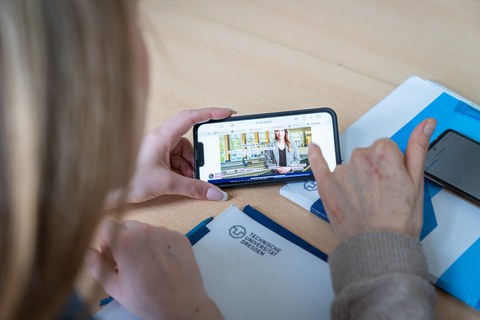
© Steffen Schreiber
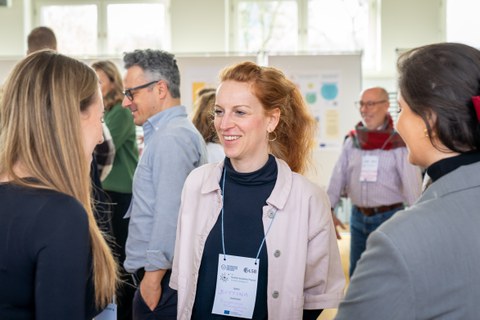
© Steffen Schreiber
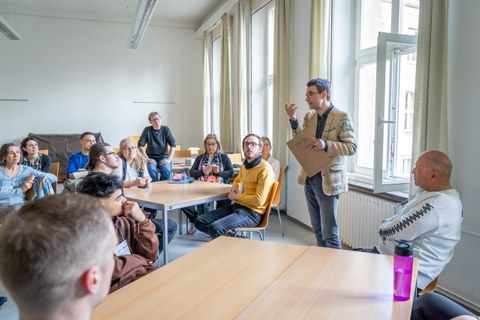
© Steffen Schreiber
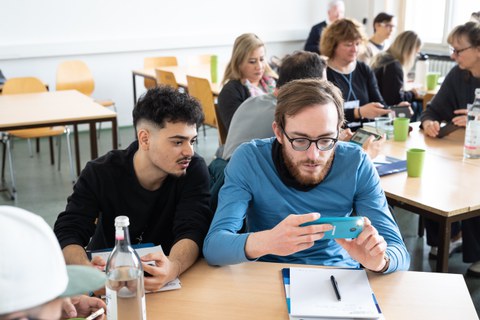
© Steffen Schreiber
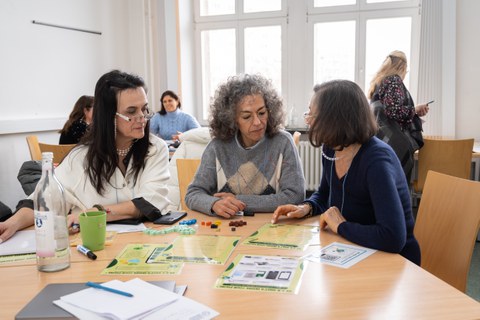
© Steffen Schreiber
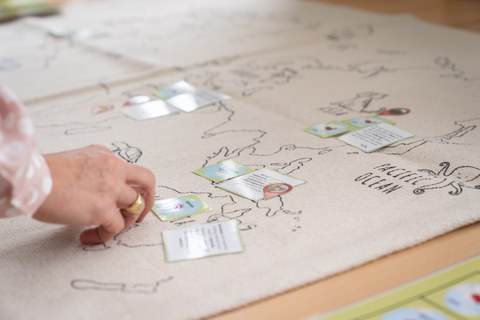
© Steffen Schreiber
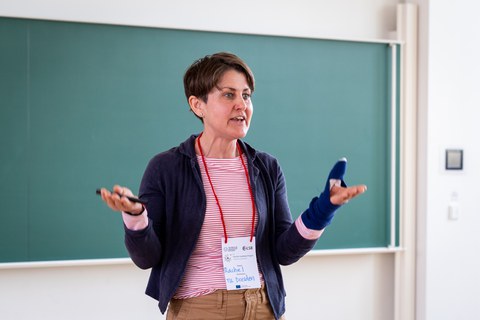
© Steffen Schreiber

© BNE Sachsen

